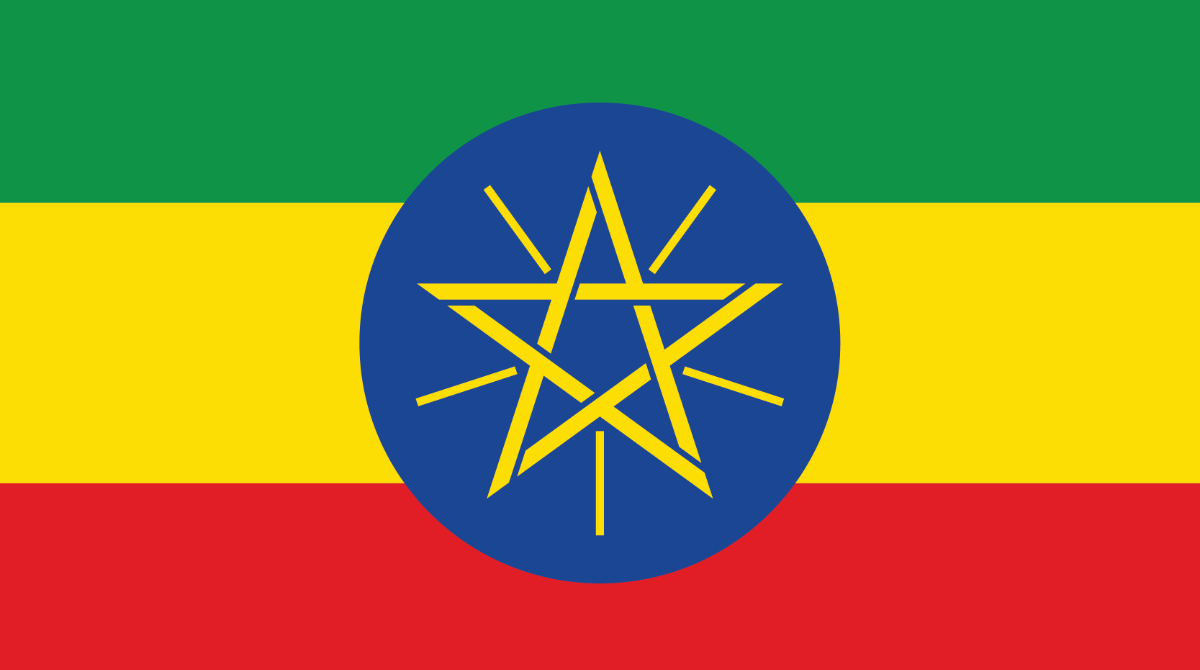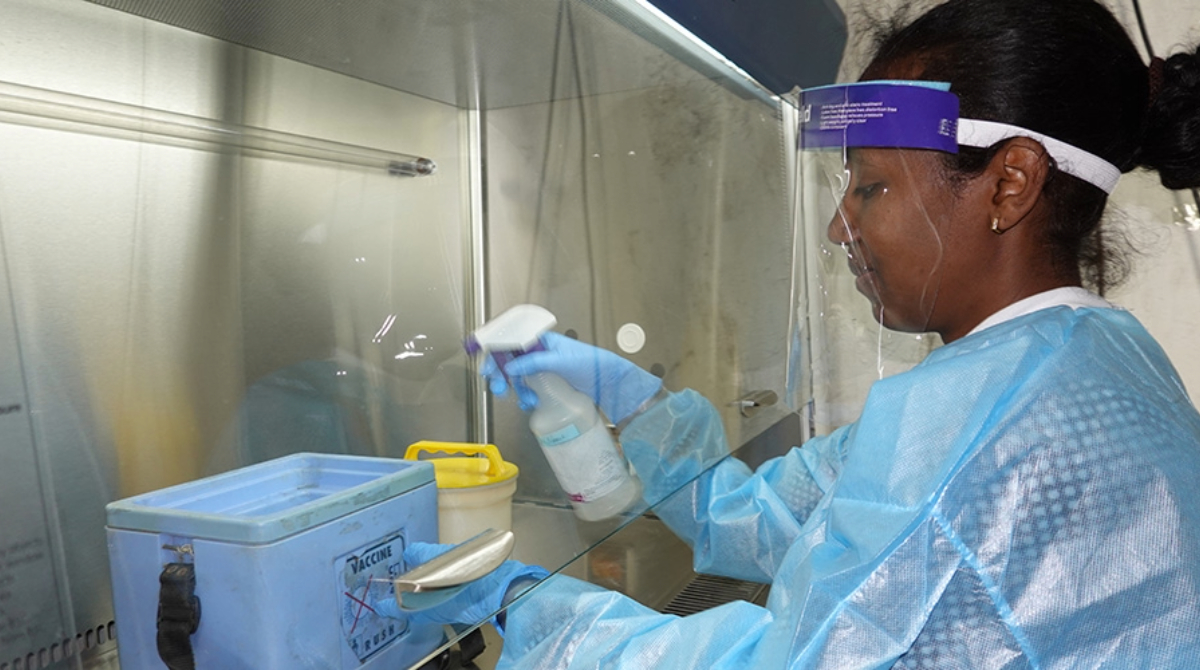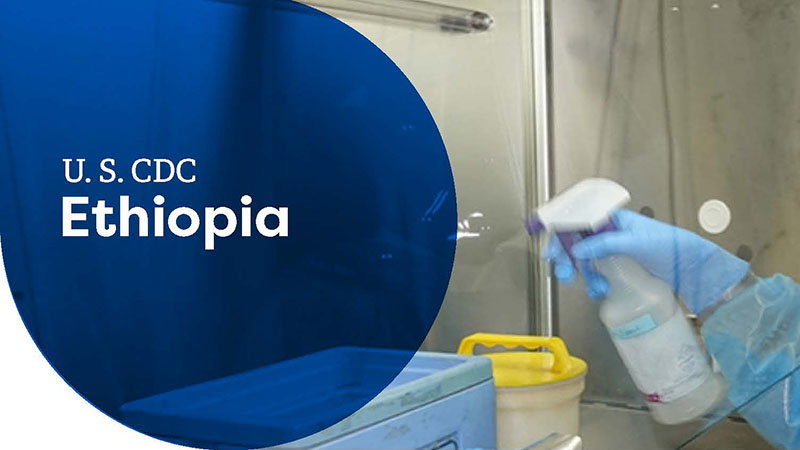At a glance
CDC works with the Ministry of Health (MOH) and other partners to build effective public health collaboration and partnerships, which strengthen the country's core public health capabilities: data and surveillance, laboratory capacity, workforce and institutions, prevention and response, innovation and research, and policy, communications, and diplomacy.

Overview

CDC established an office in Ethiopia in 2001. CDC works closely with the Government of Ethiopia and partner organizations to detect, prevent, and control infectious disease outbreaks, and build and strengthen the country's core public health capabilities. These include data and surveillance, laboratory capacity, workforce and institutions, prevention and response, innovation and research, and policy, communications, and diplomacy. CDC’s work aims to protect the health of our nations and public health around the world.
CDC in Ethiopia also addresses the following public health areas:
- Global health security
- Public health emergency management and outbreak response.
- HIV
- Tuberculosis (TB)
- Malaria
- Vaccine preventable diseases (VPDs), including polio and measles.
Global health security
CDC's global health security efforts in Ethiopia help enhance the country’s ability to prevent, detect, and respond to disease outbreaks.
Public health systems
CDC helps strengthen and expand laboratory testing, epidemiology, disease surveillance, and infection prevention and control.
Laboratory systems strengthening
CDC provides guidance on specimen management and biosafety to deliver diagnostic-specific recommendations. CDC also supports the Ethiopian Public Health Institute (EPHI) to establish a national framework for biosafety and biosecurity.
Workforce development
Through the Field Epidemiology Training Program (FETP), CDC strengthens Ethiopia's workforce capacity to identify and stop health threats before they spread. The program consists of three levels of training: frontline, intermediate, and advanced. Participants learn to gather critical data and turn it into evidence-based action. FETP graduates are critical to preparedness and response efforts.
FETP-Advanced has 692 graduates since 2009 and 155 current residents. Specific specialty tracks have been established— including malaria, HIV, and noncommunicable diseases. FETP-Intermediate has 19 graduates and 18 current residents since 2021. FETP-Frontline has a total of 1,144 graduates since 2017 and 80 current residents. Additionally, 156 surveillance officers from police and defense forces also received training.
Surveillance systems
CDC works with the EPHI to implement a national surveillance system (DHIS2) that collects infectious disease data from health facilities.
Public health emergency management
CDC supports the Public Health Emergency Management system, which involves preparing, preventing, detecting, responding, and recovering from public health threats.
Key achievements
- CDC supported training of 1,833 disease detectives in advanced, intermediate, and frontline FETPs since 2009.
- 11 of 13 regions have established EOCs.
- Since 2014, CDC has supported Ethiopia’s EOCs to respond to: COVID-19, Ebola and Marburg preparedness, meningitis, cholera, measles, severe acute malnutrition, dengue fever, chikungunya, scabies, drought-related public health issues, flooding, and internal displacement.
- During the COVID-19 pandemic, CDC worked with the FMOH, EPHI, and other public health partners to ensure broad access to diagnostic services and prevent further spread of disease.
HIV and TB
As a key implementer of the U.S. President's Emergency Plan for AIDS Relief (PEPFAR), CDC plays an essential role in the fight against HIV and TB. With unmatched scientific and technical knowledge and long-standing relationships with ministries of health, CDC is uniquely positioned to advance HIV, TB, and other global health security activities that keep Americans safe at home and abroad.
Through PEPFAR, CDC provides critical support to Ethiopia's public health infrastructure, improving the country's ability to prevent, detect, and respond to HIV, TB, and other infectious diseases and minimizing their risk from entering the U.S.
Immunization
CDC's immunization experts partner with Ethiopia to:
- Eradicate polio and eliminate measles.
- Develop an evidence-base for ways to better deliver vaccines.
- Strengthen the national routine immunization program.
- Provide technical support to introduce new vaccines.
- Support outbreak investigation and responsive immunization campaign activities for measles, polio, cholera, COVID-19, and other VPDs.
- Support routine immunization programs in evaluating current practices, introducing new vaccines, and designing approaches to improving access and vaccine coverage.
Key achievements
- CDC piloted the Hepatitis B vaccine, which is given at birth to prevent maternal-to-child transmission, to assess feasibility of use.
- CDC helped establish a surveillance site to monitor for adverse events following COVID-19 immunization.
- CDC supported trials of smaller measles vaccine (5 dose) compared to usual presentation (10 dose) to assess the impact on coverage and wastage.
- CDC helped evaluate barriers to receiving vaccines after the first year of life, systems for following up on children who have missed vaccine doses, and urban immunization programs.
- CDC generated evidence on the cost of VPD surveillance.
Malaria
CDC has collaborated with partners to support implementation of malaria prevention and control activities in Ethiopia. CDC's technical support has included investigation of insecticide resistance and research on durability of long-lasting insecticide-treated bed nets. Ethiopia is close to achieving malaria elimination in more than 230 districts.
Key achievements
- Distributed more than 50 million mosquito nets since 2008.
- Delivered over 9 million rapid diagnostic tests and nearly 16 million fast acting malaria medicines.
